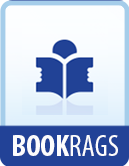TO MOTHERS
INTRODUCTION
Interior freedom rests upon the principle of non-resistance to all the things which seem evil or painful to our natural love of self. But non-resistance alone can accomplish nothing good unless, behind it, there is a strong love for righteousness and truth. By refusing to resist the ill will of others, or the stress of circumstances, for the sake of greater usefulness and a clearer point of view, we deepen our conviction of righteousness as the fundamental law of fife, and broaden our horizon so as to appreciate varying and opposite points of view. The only non-resistance that brings this power is the kind which yields mere personal and selfish considerations for the sake of principles. Selfish and weak yielding must always do harm. Unselfish yielding, on the other hand, strengthens the will and increases strength of purpose as the petty obstacles of mere self-love are removed. Concentration alone cannot long remain wholesome, for it needs the light of growing self-knowledge to prevent its becoming self-centred. Yielding alone is of no avail, for in itself it has no constructive power. But if we try to look at ourselves as we really are, we shall find great strength in yielding where only our small and private interests are concerned, and concentrating upon living the broad principles of righteousness which must directly or indirectly affect all those with whom we come into contact.
I
The Freedom of Life
I am so tired I must give up work,” said a young woman with a very strained and tearful face; and it seemed to her a desperate state, for she was dependent upon work for her bread and butter. If she gave up work she gave up bread and butter, and that meant starvation. When she was asked why she did not keep at work and learn to do it without getting so tired, that seemed to her absurd, and she would have laughed if laughing had been possible.
“I tell you the work has tired me so that I cannot stand it, and you ask me to go back and get rest out of it when I am ready to die of fatigue. Why don’t you ask me to burn myself, on a piece of ice, or freeze myself with a red-hot poker?”
“But,” the answer was, “it is not the work that tires you at all, it is the way you do it;” and, after a little soothing talk which quieted the overexcited nerves, she began to feel a dawning intelligence, which showed her that, after all, there might be life in the work which she had come to look upon as nothing but slow and painful death. She came to understand that she might do her work as if she were working very lazily, going from one thing to another with a feeling as near to entire indifference as she could cultivate, and, at the same time, do it well. She was shown by illustrations how she might walk across the room and take a book




